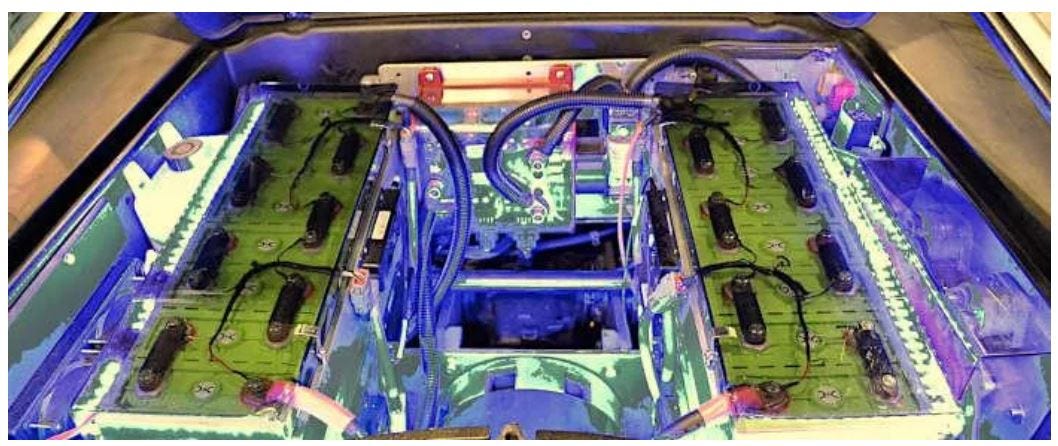Table of Contents
Vocabulary
Vocabulary Quiz: Electric Vehicle Revolution
Multiple Choice Quiz on "The Electric Car Revolution"
Bonus Set: T/F Questions "The Electric Car Revolution"
Discussion Questions for The Electric Car Revolution3
The Electric Car Revolution: Is It Realistic, Optimistic or Not?
Governments and motor manufacturers around the world are throwing money and resources into the development of electric vehicles. But can electric power really replace the internal combustion engine before the middle of the century? Maybe it can, but this is by no means certain.

Electric vehicles have arrived. With technology led by Tesla, and all of the world's major car manufacturers following along behind, electric vehicles are now a common sight on the roads of most developed countries. Yet the situation in less developed countries is rather different; the only African country to have started the change to electric vehicles is in South Africa and even there, electric vehicle sales still account for less than 1% of the total. In South America, the situation is better, with all Latin American countries beginning the move towards electric vehicles, particularly Colômbia which, in 2020, had a third of the continent's total electric car fleet. In Russia, the wealthy were investing in imported electric cars until the invasion of Ukraine stopped most imports; a very small number of electric vehicles are manufactured locally. In India the government is promoting the purchase of electric vehicles with tax exemptions and other incentives. So electric cars have arrived, and their share of the market is increasing almost worldwide.
Does this mean, therefore, that the world is on track to phase out the use of petrol-driven vehicles in less than thirty years? And does it mean that electric vehicles are the sustainable solution to our transportation needs for the second half of the century? Unfortunately, to the disappointment of some people, the answer to both of these questions has to be "no".
The massive development of electric vehicles can only be possible if two conditions are met. Firstly, the expansion of electric vehicle manufacturing is dependent on the fragile ability of manufacturers to source vastly increased quantities of vital components and elements without which electric vehicles cannot operate; these include lithium, cobalt and "rare earths" such as neodymium and tantalum, as well as silicon chips which have already been in short supply since 2020. Secondly, few countries currently have electricity grids that are anywhere near being able to cope with the huge increase in demand for electricity that will accompany any rapid growth in electric vehicle ownership. Without adequate supplies of all the vital ingredients of electric motors and batteries, or without power supplies that are able to provide the electricity required to recharge millions of electric batteries every day (as well as supplying the current we need for everything else, such as lighting, heating, trains and electric devices), the electric car revolution will run up against problems in all but the most developed countries.
Listen to this episode with a 7-day free trial
Subscribe to Online ESL Lessons to listen to this post and get 7 days of free access to the full post archives.










